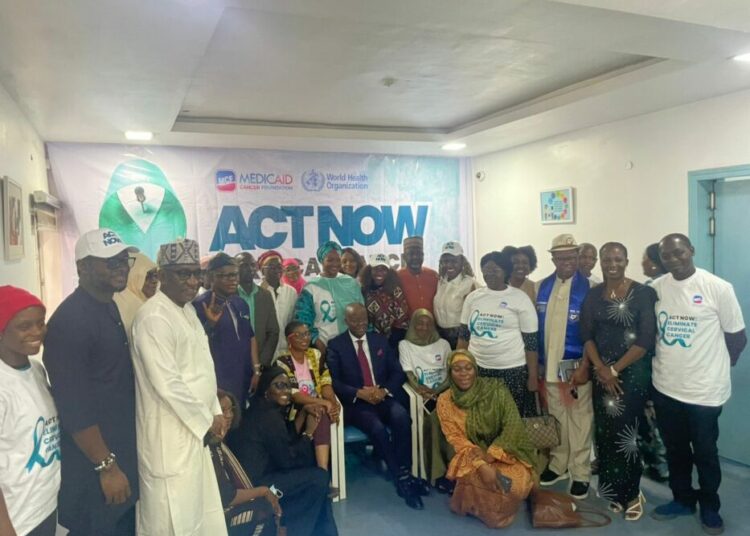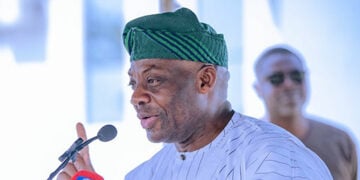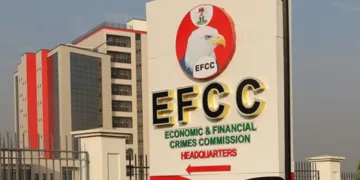The Medicaid Cancer Foundation (MCF) has disbursed N100 million to support cancer patients across the country as part of its ongoing commitment to improve access to care and reduce the burden of cancer treatment in the country.
Speaking during the disbursement ceremony on Tuesday in Abuja, the Founder and Chief Executive Officer of the Foundation, Dr. Zainab Shinkafi-Bagudu, said the funds would benefit patients who applied through the Foundation’s ‘Care on Wheels’ programme, which provides financial, diagnostic, and psychosocial support to individuals battling cancer.
“This event is symbolic because we are disbursing N100 million, which will go directly to hospitals for radiotherapy, surgery, chemotherapy, and other treatment needs. But this amount, though significant, is still a drop in the ocean considering the cost of cancer care in Nigeria,” Dr. Shinkafi-Bagudu said.
She explained that a woman diagnosed with stage 2 breast cancer in Nigeria required an estimated N25 million for complete treatment, while some patients have spent up to N50million battling the disease. Despite this, most Nigerian cancer patients are diagnosed late, often at stages 3 or 4, resulting in a survival rate of just 25 per cent compared to 90 per cent in high-income countries like the UK and the US.
Dr. Shinkafi-Bagudu, who also serves as a board member of the Union for International Cancer Control (UICC), emphasised the need for a stronger national health insurance system and a well-funded national screening programme to promote early detection.
“Nigeria has the human resources, dedicated oncologists, nurses, and specialists, but we need the right structure. A robust health insurance system and early diagnosis are key to saving lives and reducing costs,” she said.
According to her, the funds disbursed were raised through donations and proceeds from the 11th annual “Walk Away Cancer” campaign held in October, which mobilised individuals and organisations to contribute to cancer care and awareness.
She urged the government to release appropriated funds for cancer care promptly, expand screening services at the primary health care level, and collaborate more with private sector partners and civil society organisations.
“The government is on the right track, but we need more, budget releases, partnerships, and sustainable screening programmes. Cancer is not a death sentence when detected early,” she said.
The Medicaid Cancer Foundation has, since its establishment, supported hundreds of patients through financial aid, advocacy, and awareness campaigns aimed at promoting early detection and improving cancer survival rates in Nigeria.
Also speaking at the event, the Director-General of the National Institute for Cancer Research and Treatment (NICRAT), Prof. Usman Aliyu, commended the foundation for its sustained support to cancer patients, noting that government efforts were ongoing to strengthen national cancer funding mechanisms.
Prof. Aliyu revealed that N200 million had been appropriated for the National Cancer Health Fund in 2025, though he admitted the amount remains inadequate given the rising incidence of cancer in the country.
He disclosed that the Institute was also working on a new National Childhood Cancer Program, with an initial allocation of N15 million, and expressed optimism that partnerships with NGOs like Medicaid would help expand access and reach.
Similarly, the Director of Standards and Quality Assurance at the National Health Insurance Authority (NHIA), Dr. Yakubu Akata, stated that the Authority currently covers several cancer-related services, including surgeries, chemotherapy, and radiotherapy, though the latter is only covered up to 50 per cent due to cost constraints.
“We have been directed by the National Assembly to cover all cancer cases under health insurance. We are also developing a Catastrophic Health Fund to support patients with cancer, sickle cell disease, and kidney failure,” he said.
He added that partnerships with pharmaceutical companies had enabled NHIA to subsidize cancer drugs by up to 90 per cent in some cases and called for more Nigerians to enroll in health insurance to build a stronger, more resilient health system.





